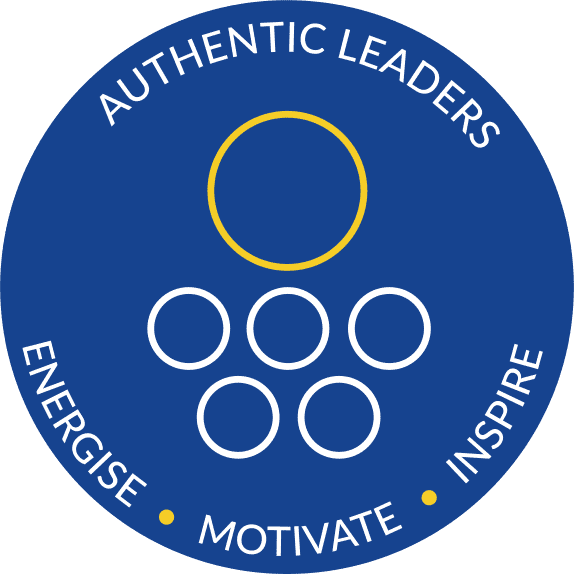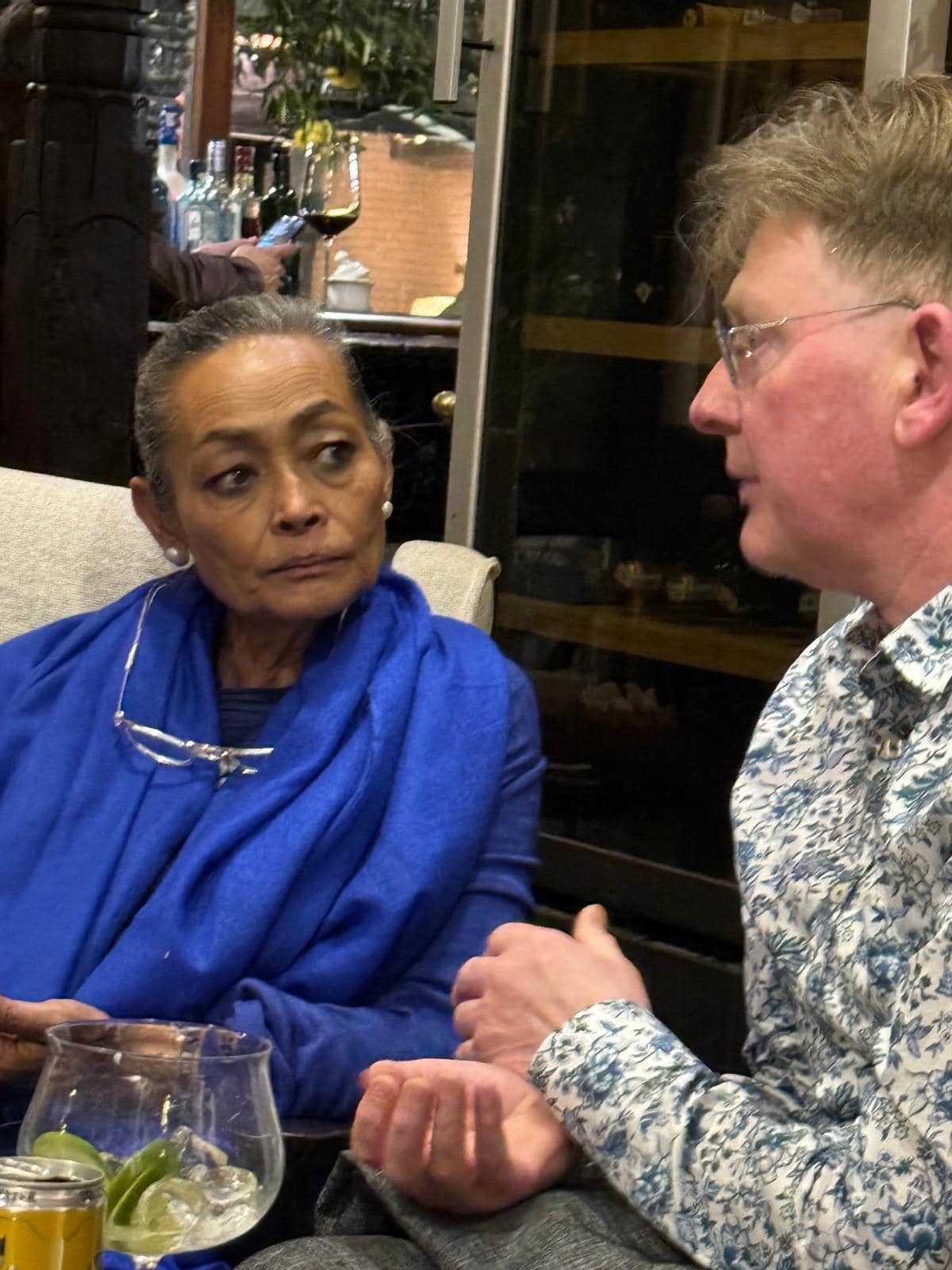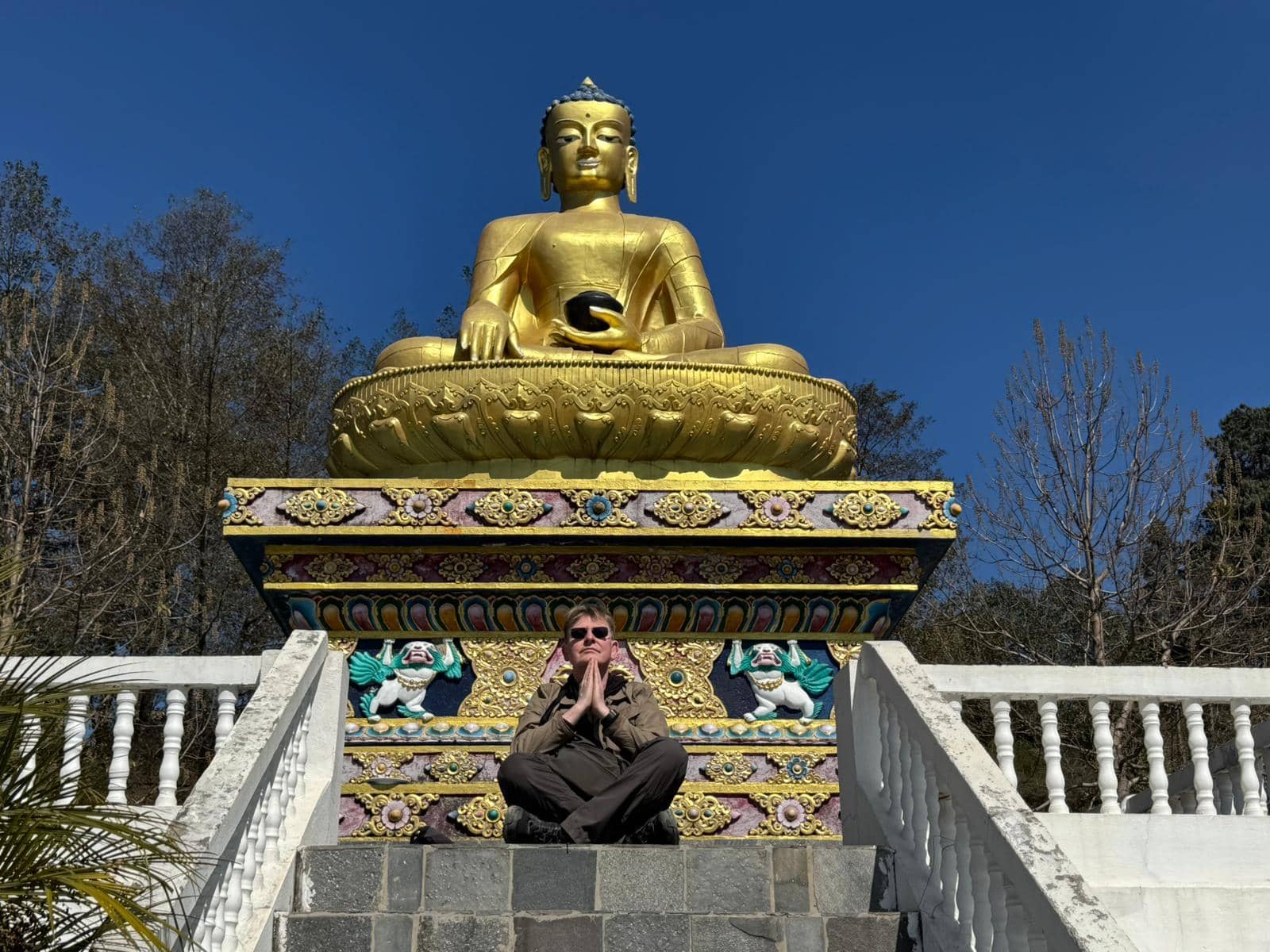A CONVERSATION WITH EMILY TSANG
In this first video, Emily takes the role of interviewer, guiding the conversation by asking Danny a series of questions to explore his approach to coaching, what clients can expect, and the kind of impact his work has on people and teams.
Emily Tsang is a Business Development Executive at DC Thomson, a media company based in Dundee, Scotland.
In her role, she focuses on identifying and fostering new business opportunities for the company. I had the pleasure of sitting down with Emily, who generously shared her insights and posed thought-provoking questions as we explored key themes together.
The tables turn as Danny asks Emily about her own experiences. They dive into what coaching was like from her perspective, what surprised her, and the changes she’s seen since working together.
Character formation and coming of age
Much mystery surrounds the subject of coaching in the business environment, especially leadership development coaching. There are several ways of crystallising what is really going on in a leadership development coaching journey.
The journey begins with a comprehensive assessment of where the coachee finds themselves on their leadership journey.
Most important at this stage of the process is to begin to focus the coachee on the power of innate strengths (that they were born with) rather than focusing on weaknesses and analysis.
At the same time, introducing the coachee to a number of world class personality profiling models can create excitement and confidence in the process, paving the way for the next steps.
As part of a journey that is laser focused on character formation, a wide range of other world class assessments, e.g. career drivers, can add to the excitement and joy that a leadership development coaching process should bring.
All in all, the direction of travel is very much aimed at transitioning the coachee through any necessary stages in fashioning their personal growth journey towards, what is sometimes simplistically described as “coming of age”.
The hope is that the coachee will grow in uniquely different ways so that their leadership style is observably and obviously characterised by adult thinking, adult perception, adult behaviour, adult decision-making, adult communication, adult attitude and adult emotional disposition.
Every coaching journey will be unique, depending upon the coachee starting point and individual strengths and needs.
The catastrophic crisis of leadership in our world

Consistent with his direct and jovial style, Sir John addressed the CEOs at the beginning of the master class as follows:
“ ….since the Second World War we have experienced a poverty of excellent leadership in the public, private and voluntary sectors in the UK.”
Sir John then added, almost prophetically:
“ ….and if we don’t do something about this, it will eventually become catastrophic.”
The worldwide crisis in leadership that we are now witnessing is the fulfilment of Sir John’s prescient prediction.
In the UK alone we have witnessed the seismic impact of immature and incompetent leadership in many faith organisations, successive governments and most notably, Post Office limited.
The laundry list of failed leadership in UK organisations could go on and on and on.
Sir John highlighted several key development challenges facing nearly all leaders:
- The need for character formation.
- The need for regular meditation as part of character formation.
- The vital quest to find out what is really going on in your organisation rather than listening to what subordinates believe the leader wants or needs to hear.
- The mystery and the magic that is embodied in the developed skill of being able, as a leader, to be compassionate and genuinely caring when appropriate whilst at the same time being able to show toughness and conviction when appropriate.
There seem to be some remarkably enlightened coaches and leadership development training programs on offer around the world. Sadly, these appear to be the exceptions rather than the rule.
The Power of Vulnerability
At a presentation that I recently delivered in London, a member of the audience appeared to be discomforted by the references that I made as I promoted the concept of “accepting and embracing our own vulnerability.”
I had just openly shared the following introduction of myself that I offer to new clients, individually or in groups:
“I am the most broken human being that I know. I have made more mistakes than any client I have ever coached. I am fragile and very vulnerable. I am just like my mother (who is no longer with us) I am hypersensitive and I can be hurt.”
My introduction created a hushed silence, as it usually does.
Most people are taken aback when any man confesses to such raw vulnerability with such comfortable confidence.

The lady in the audience that seemed so discomforted later asked me the following question with a tone that revealed her incredulousness:
“I have never heard this approach to vulnerability before. Surely it is not correct. How can you possibly encourage people to show their vulnerability?”
It was a great question and it gave me the perfect opportunity to share my belief that acknowledging vulnerability in self is an invitation to learn, grow and develop ways to protect self or, in the words of my countrymen in Ireland, to “stick up for yourself.”
I noticed at least one other audience member crying.
The realisation that vulnerability need not be the sort of tyranny that we hide and run away from can be experienced as quite a dramatic, even cathartic moment, a powerful lightbulb moment.
It is not unusual to observe clients experiencing this lightbulb moment and quickly transitioning into excitement as they see the potential for liberation as they begin to strengthen their protections.
To illustrate the core idea here, I will describe one of the most powerful protections that I have developed.
There was a time, many years ago, when anyone criticising anything that I had said or done would create mild panic and trauma inside of me. A form of inner psychological, physical and emotional paralysis would escalate, leaving me almost incapable of responding in any way.
I have learned with enthusiasm that when presented with any form of criticism that I usually respond by saying something like:
“Oh how interesting. Please tell me more and do help me to understand what you mean with examples. I really want to hear it.”
Just imagine the impact that such a response has on me, never mind the person offering the criticism.
Only in vulnerability do we discover real strength.
Trusting Intuition, your Gut Instinct
The two go hand in hand. Even though so many people do not trust their instinct and err on the side of logical analysis in their lives, most people are all too keenly aware of the inner voice that is their gut instinct.
How many times have you erred on the side of logical analysis, having analysed a situation you were facing, only to discover that the logical pathway didn’t work out very well?
How many times have you parked the logical analysis and trusted the strength of your gut instinct only to discover that your intuition was absolutely spot on?

The HeartMath Institute in Scott’s Valley California suggests that:
Most decisions in life are made on the basis of heartfelt instinct underpinned by logic.
Notice the HeartMath focus on the “heart” as the source of intuitive power as well as the gut. See: www.HeartMath.org
Why not experiment the next time you’re leaning heavily towards a decision based on pure logic?
Try to listen to the voice of your intuition from your heart, your gut?
See if you can find the courage to go with heartfelt instinct and monitor the outcome.
With lots of practice you might just find the courage and develop this skill so that it can become your default.
Light Bulb Moments, Cathartic Breakthroughs
 Especially at the emotional level, breakthroughs and lightbulb moments bring a remarkable power to cut through very unhealthy, established and embedded understandings or “givens” that may have blocked our our ongoing growth and development for a long time.
Especially at the emotional level, breakthroughs and lightbulb moments bring a remarkable power to cut through very unhealthy, established and embedded understandings or “givens” that may have blocked our our ongoing growth and development for a long time.
Very often, these givens take the form of negative cognitive scripts that I hear in my head associated with “automatic negative thinking.”
Examples I have helped clients to uncover include:
“I’m no good”
“I’m not good enough”
“I can’t do this”
“It’s too much for me”
“I’m going to get found out”
“I’ve done it again, I’m always messing things up”
“It doesn’t matter what I do, I always get it wrong”
“I’m too nervous”
“My life’s a mess”
The list could go on and on.
In facilitating and assisting the client’s liberation from such destructive cognitive processing, instant fear often looms large.
“I’m afraid of what I’ll find out”
“My nerves are wrecked just thinking about these things”
“I’m afraid I’ll end up crying and losing control”
The reality is almost invariably the opposite and many clients simply need to trust the experience of the coach to navigate such emotional turbulence without too much emotional distress.
However, without the power of an emotional experience or an emotional catharsis, the bottleneck, the dam can hold out and the client can be held in the grip of the blockage.
For most human beings, navigating the pathway to liberation from automatic negative thinking / negative cognitive scripts is a daunting task and would require the most powerful conviction to through.
In my own life I am grateful that I found the courage and the wisdom to set aside my ego and my pride so that I was able to “get help”.
That is the ultimate message for those in the grip of this destructive dynamic.
Balancing Emotional Demands and Avoiding Burnout
It is true that we are all unique as individuals and so, understandably, there no one size that “fits all”. Every life and every learning, growing and developing journey will be unique, bespoke to you.
If there are no universal panaceas for balancing emotional demands and avoiding burnout, are there any useful pointers?
In my experience, in my own life and in the journeys of my clients here are the key useful pointers:
- Take back control at every level in your life.
- Use every world-class tool and method to become more self-aware, especially of your strengths.
- Get lots of help if necessary.
- Try to find out if you believe that you are “an important person in the world”, examine your sense of self worth.
- Find out if you are being affected by automatic negative thinking (most people are) and get help if necessary.
- To explore your quality of emotional intelligence, start by exploring how you usually respond in everyday conflict situations asking yourself two critical questions:
- Have I got into the habit of reacting to conflict?
- Do I know how to take my own emotional temperature?
- If your answers are yes to the first and no to the second, have a look at the books published by the Harvard University’s Law School Project on Negotiation.
- If you are not already using mindfulness meditation regularly, have a look at a brilliant video on YouTube, search for BBC Breakfast Time Mindfulness Meditation.
- Are you in the habit of quietly acknowledging / expressing to yourself “gratitude”, being thankful for the good things in your life. The medical research on this subject is fascinatingly reassuring.
- Do your best to be authentic, to be real, to live in the moment, to be fully alive and fully loving (especially loving of yourself.)
Trust and friendship as the foundations for a happy, balanced life
These discussions, reflections, and insights remind us that leadership is not just about strategy or skill – it’s about character, resilience, and the courage to grow.
The journey toward impactful leadership is deeply personal, shaped by self-awareness, emotional intelligence, and a willingness to embrace both strengths and vulnerabilities.

As we continue these conversations, I hope they serve as a catalyst for deeper reflection and meaningful change. Stay tuned for more discussions with inspiring individuals who are shaping the future of leadership.
Finally, Emily shares a few words for anyone considering coaching — offering honest reflections, encouragement, and a strong recommendation. She emphasises the value of real one-to-one support, especially over passive learning through blogs or TikTok videos.


